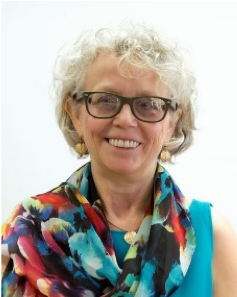
My name is Melanie Hwalek. I have been practicing evaluation for almost 40 years. I’ve always taken for granted my knowledge of social science research design. Recently, I had a profound experience that made me realize how this knowledge can be used to empower voices from the field.
Hot Tip: Respect the power of our social science research knowledge and use it for the greater good.
I learned this lesson from BABESWORLD, a systems approach to healthy living and substance use disorder prevention. BABESWORLD began 40 years ago as BABES, a K-12 puppet-based storytelling curriculum designed to assist young people develop positive living skills through accurate, non-judgmental information about the use and abuse of alcohol and other drugs. BABESWORLD’s design emanated from the personal recovery of its designer and hours of storytelling from recovering adults. Decades of stories from BABESWOLD participants illustrate how it has profoundly impacted their lives.
My organization was hired to help BABESWORLD become “evidence-based.” Certification as “evidence based” would qualify BABESWORLD for U.S. federal funding. At the contract kick off meeting, the BABESWORLD CEO asked me to read a chapter in Antoine De Saint-Exupery’s The Little Prince. The Little Prince is a fable written in the 1940s where a little prince travels from his home on a star to visit other stars in the galaxy. On each star he visits there is a parable. The parable the CEO asked me to read was about a star where a Turkish astronomer had identified, for the first time, the little prince’s home. In his turban and robe, the Turkish scientist presented his findings at a galaxy-wide conference of astronomers. Nobody believed him. Then, the king of the Turks mandated that all people dress in European clothes or face death. Ten years hence, the Turkish astronomer made the exact same presentation to the exact same conference of astronomers. This time he was dressed in an elegant European suit. The conference hailed him for his discovery. After I read this story, the CEO said to me, “I need you to dress BABESWORLD in European clothes.” This was a profound realization to me of how my knowledge of quasi-experimental design could be used to translate what BABESWORLD knew from decades of anecdotal evidence (Turkish) into the language of the U.S. scientific community (European). It humbled me to think about our social science research knowledge as “power,” and that we can use this power to give voice to those in the field.
Rad Resources: To learn about BABESWORLD, please visit: www.babesworld.org
Hazel Symonette describes this translational power as boundary spanning, and the evaluator as boundary spanner. Read Symonette’s chapter on culturally responsive evaluation in Hood et. al’s Continuing the Journey to Reposition Culture and Cultural Context in Evaluation Theory and Practice.
The American Evaluation Association is celebrating IC TIG Week with our colleagues in the Independent Consulting Topical Interest Group. The contributions all this week to aea365 come from our IC TIG members. Do you have questions, concerns, kudos, or content to extend this aea365 contribution? Please add them in the comments section for this post on the aea365 webpage so that we may enrich our community of practice. Would you like to submit an aea365 Tip? Please send a note of interest to aea365@eval.org. aea365 is sponsored by the American Evaluation Association and provides a Tip-a-Day by and for evaluators.
